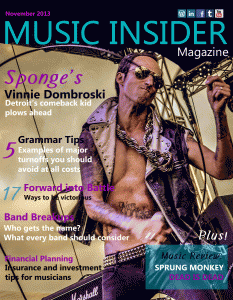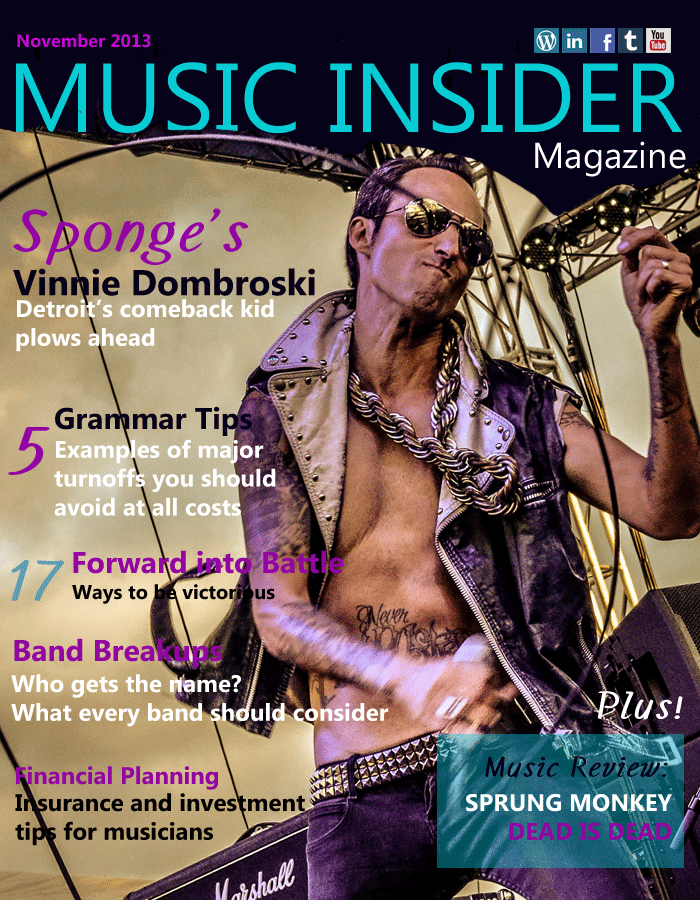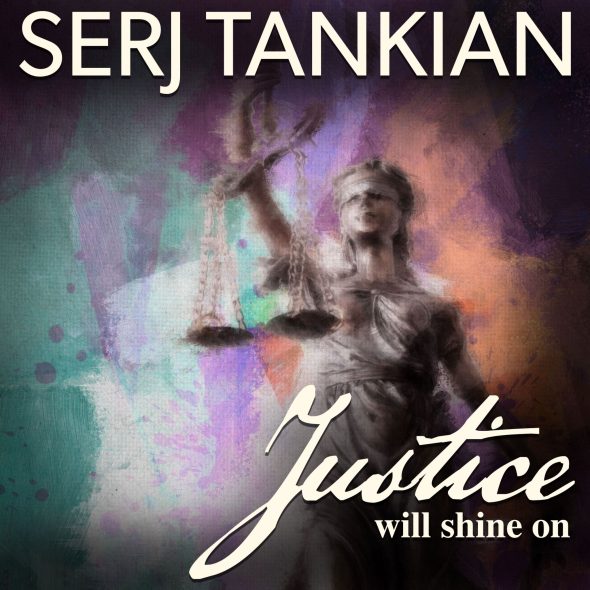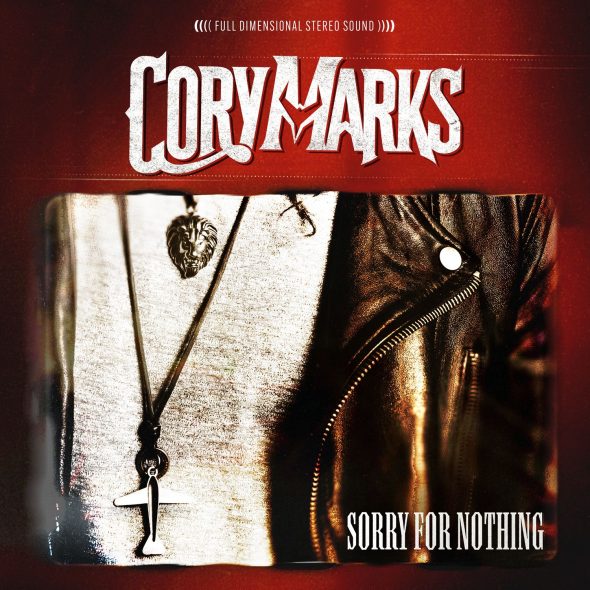Detroit’s comeback kid plows ahead
by Brian McKinny, senior editor
Vinnie Dombroski is very important to the history of rock and roll in Detroit, Mich. As the front man of no less than three working bands — Sponge, Crud and the Orbitsuns — his vocal talents and force of personality seemingly know no bounds. Unlike the city from which he hails, Dombroski is accustomed to making strong comebacks.

He’s an original member of Sponge, which realized almost instant success with the 1994 debut of “Rotting Piñata,” a must-have album for any aficionado of early ’90s alternative rock. Catchy songs such as “Plowed” and “Molly (16 Candles Down the Drain)” boosted the album — that had heavy rotation on MTV and flooded the alt-rock radio airwaves — to Recording Industry Association of America Gold status.
After a lengthy hiatus, Sponge is back with the new “Stop the Bleeding” album, a new tour and a lot of the same old attitude. Based on the album title, you might think Sponge has suffered some great defeat or injury, but nothing could be further from the truth.
Recently, I was fortunate enough to sit down and talk with Dombroski, the sole remaining original member of the band, about everything from his humble beginnings as the son of a gigging guitar player and guitar teacher in Detroit, to his thoughts on the state of the music industry today. We discussed his touring with Sponge in support of their latest release and one of his favorite side gigs as singer and guitarist with the Orbitsuns, an eclectic and entertaining amalgamation of country and rockabilly with a modern-day twist.
McKinny: How old were you when you got into music? Was guitar your first instrument?
Dombroski: Yeah, guitar was my first instrument. Then I switched to drums, which I stuck with, and it eventually led, in a roundabout way, to my singing with Sponge. My dad taught guitar. He was a gigging musician, so there was always a guitar around the house, but it wasn’t like I took lessons from my old man or anything like that. At 12 years old, I was writing my own songs and playing my own music.
Later on, when I was out there gigging, playing drums, I had a band called Loud House. I played the drums, and I did a lot of the songwriting, and because I wrote most of our songs, that morphed into playing guitar and singing with Sponge.
McKinny: Growing up in Detroit when you did, you must have been exposed to the punk and glam scene at the time — Iggy Pop and The Stooges, MC5, The Meatmen. Who were some of your earliest influences?
Dombroski: The old Motown R&B music was ingrained in my brain. The Galaxy 500 with the AM radio blasting the Motown stuff — and that’s good stuff to have ingrained into you. That’s what I remember being my earliest exposure to music.
McKinny: You mentioned playing drums in your previous band, Loud House. How did you end up singing and transforming the band into what is now Sponge?
Dombroski: I had come off the road with another band, I was back in town, and a bass player and a guitar player were looking for a drummer. It looked like the singer wouldn’t be around much longer, so when I jumped on board, they were ready to audition a singer. When that singer came down and auditioned, we knew we had something good going on, which turned out to be the beginning of the Loud House thing.
We ended up doing a record on Virgin, and in the process of trying to make a second record, the singer quit. Since we all had participated in the writing, we decided that we’d look for a singer but record a demo at the same time, and I ended up singing on the demo. After recording the demo, we decided that we had enough strong songs that instead of finding a singer, we should just look for a new drummer. So by default, I ended up being the singer of what became Sponge.
McKinny: What was it like for you to make the move from being behind the drums to being out in front of the band? Was that a difficult transition for you or was it a natural progression?
Dombroski: I can’t recall a real problem with making the transition. It was more of a means to an end. We had these songs, they sounded damn good, and somebody had to sing this shit. So yeah, man! Let’s go! Also, it was kind of hard for us to find a singer that we would have collectively been happy with, because the original singer was a special kind of guy, and it just would have been very difficult to move on with something like Loud House. So with Sponge — the new songs, the new direction, and me jumping out front to sing the new stuff — we didn’t miss much of a beat.
McKinny: Once Loud House ended its run, how did you come up with Sponge as the band’s name?
Dombroski: That was a name on a list of many names at the time, and we had whittled it down to two names right before a show we were doing just outside of Detroit. The show’s promoter came up to us and said, “What name am I putting up on the marquee? What are you guys calling yourselves?” We said, “Well, some of us like the name The Electric Cattle Gods.” You know, because that was cool! The other name we had was Sponge. The promoter said he didn’t have enough letters to put The Electric Cattle Gods on the marquee, so we told him to put Sponge up there … From that point on, our name was Sponge.
McKinny: What was it like to have such quick success with Sponge after working so hard to find success with your previous groups? How did you deal with the sudden change of fortune?
Dombroski: The only thought that comes to mind from back then was “go.” Keep moving forward, roll with the punches, don’t look back, don’t be apprehensive. We knew we had some pretty strong songs, and I think we felt that it was just a natural progression that we would have success, not only on MTV, but on the radio as well. Radio was changing like crazy back then, and based on the strength of a song like “Plowed,” we thought that it was a slam-dunk!
However, when the song was first written and recorded, it wasn’t as if we sat there going, “Oh, man. This is gonna be a radio smash!” But with the alternative format emerging the way it did, we were of the mind that, “Hmm, this is working, and this will continue to work!” So yeah, you could say that we were fired up and ready to go at that point.
McKinny: Where did you record your album, “Rotting Piñata?” Was it there in Detroit or somewhere like LA or NYC?
Dombroski: That record was already halfway in the can before Sony signed us and got involved. We were well on our way to getting it done. We recorded it in Saline, just outside Ann Arbor, Michigan, on our own dime. Sometimes, it’s the best way to do it, and that’s how we’re doing it today. You reap more benefits, but you take all of the risk, too. There’s always risk.
McKinny: “Have You Seen Mary?” a track from your album, “Wax Ecstatic,” was included in the soundtrack of Kevin Smith’s movie “Chasing Amy.” Before that, “Seventeen” was included on the “Mallrats” soundtrack. What was your relationship with Kevin Smith, and how did that come about?
Dombroski: From what we understood, Kevin was a big fan of the band, and we were happy to provide the music because we were fans of Kevin Smith! I met him at the “Mallrats” premier, many years ago.
McKinny: Have you licensed music from Sponge or any of your other bands for use in commercials, TV or movie projects?
Dombroski: I have another group I play with here in Detroit, called Crud. Crud’s music is sought after for TV shows like “CSI,” and we’ve been approached by many TV and movie people interested in licensing our music from the two albums that Crud released. We’ve been very lucky with that. Early on, it seemed like there was a lot of money in music licensing. Today, the work doesn’t seem as plentiful as it used to be, because these days, everybody wants to license music for movies, TV, commercials, whatever. There’s a ton of bands out there who own their own masters, because there aren’t as many bands involved with major labels anymore. There’s a lot more competition in the music licensing market today than 10 or 15 years ago. However, if you own your own masters, and you own the publishing (rights), it can be pretty sweet.
McKinny: How do you deal with publishing and copyright issues? Have you maintained the rights to all of the music you’ve written over the course of your career?
Dombroski: Sponge is the most complicated group to license. Fortunately, for us, even though guys who used to play in the band and aren’t in the band anymore have ownership in the publishing, we all still speak to each other and are on good terms. So as long as we’re all still speaking, and we can get people to sign off on things, it’s a relatively simple process. The easiest stuff is if there are no other co-writers or people with publishing interests to license something from a band like Crud or the Orbitsuns, where I write the majority of stuff. There may be other co-writers on some of the tracks, but because it’s so streamlined with one writer who owns the publishing, it’s a very simple process.
McKinny: Sponge has experienced several lineup changes over the years, and you are the sole, remaining original member of the band. How have those personnel changes affected the sound of the band and the music you write?
Dombroski: Yeah, I’m that last guy standing! Although, the guys currently in the group have been with the band for about a dozen years now, so a lot longer than the original lineup stayed together. We’ve managed to keep the sound of the band while trying out different things over the many albums that we’ve recorded.
As for writing music, the process … Back when the band first started, there was a group of guys in a rehearsal studio — it was really just an empty storefront with a PA system. It was all about ideas. The best ideas, of course, are the ones that get the most attention. We would know very soon whether an idea would work or not, and if something didn’t work, we’d move onto something else quickly. So, that process made a lot of sense.
Then, it began to change, even with the original members, as they began to give me tons of cassette tapes with snippets of guitar riffs or whatever, and I’d go through everything. It kind of morphed into just three of us getting into a room and working on material and listening to tapes; eventually it got down to just two of us original guys (laughing), and it was the two of us in a room, working on stuff. Then, the responsibility fell onto my shoulders.
When I get together with the group now, I’ll have something that I’ve been fleshing out — a good idea of what I want to do when we get into the rehearsal studio — and then we’ll work on it, refine it and get it done. When we’re ready, we’ll record it. But where I think it’s changed the most is that it used to be a group of guys in a room, and now I’m working out of the house and then taking the music into the rehearsal studio.
McKinny: Do you write when you’re on the road?
Dombroski: The ideas always come, you know. I’ll get some good ideas for lyrics out there, and I’ll write them down. And most likely, a melody goes with it, so I get pieces, bits and pieces of ideas that I’m always jotting down. But that can happen anywhere; it can happen on a drive, a walk or cutting the grass. It happens all the time. You just have to be available for it. Writing on the road happens. But writing happens everywhere. It’s not as if we get too many quiet opportunities these days; you really have to find the time or make the time, especially when you have all these external distractions. You have a smart phone in your hand or an iPad. It’s a challenge to block out all those things.
McKinny: It’s a big responsibility to be the writer of most of the material for a signed, working band. Do you ever get to the point where you just need to get away, blow off some steam? Maybe go off to some secluded place and just write?
Dombroski: Oh, man! That would be great to do stuff like that. I think the last time I tried to do something like that was in Tucson, Arizona, at a place called Club Congress back in the 90s. I thought, “I’ll get something done here!” But the problem was the place had a bar downstairs, so you think you’ll write some great stuff, but after you go back over the stuff you did, you see it wasn’t quite as good as you remembered it … Let’s just say that I can’t recall writing a big hit song when I was bombed.
And you know, I do get help. Our bass player, who’s produced three, four of our records — Tim Patalan — he’s not just a bass player; he also owns the Loft Studio in Saline. He’s been a big ally, getting together and fleshing out the big ideas in the studio, so help is at hand.
McKinny: You’re married with children. How do you handle that and a life on the road?
Dombroski: Oh yeah, married again, yes sir. Five kids total. I have a good wife, and I can lean on her to maintain, keep things on the level here at the house. It’s all time management and trying not to forget about happy hour occasionally, you know (chuckles)?
McKinny: How has getting back into the swing of things with Sponge — a new album, touring — affected your commitments to your other bands, Crud and the Orbitsuns? How do you coordinate things like gigs, studio time, rehearsals and everything else that goes on between the three bands?
Dombroski: Crud plays just a handful of gigs a year. The Orbitsuns have been very busy up until the time the Summerland Tour started, have been over to the UK, did a whole tour there a couple of years back. That band can play anywhere, anytime — we don’t need a lot of production. It’s a lot of fun, and we play a lot of places. But right now, it’s a priority thing. I think that Sponge deserves my focus right now, and there’s a lot of good stuff going on, so I’m hunkering down, really trying to focus on Sponge stuff. I love to do the Orbitsuns dates — squeeze them in between. But there will be a time here, probably early next year, when we’ll focus on a brand new Orbitsuns record.
McKinny: Regarding the Orbitsuns, what made you decide to start writing country songs? It seems quite the contrast from Sponge, and your industrial band, Crud.
Dombroski: That started probably around the time we did “Wax Ecstatic,” with the song, “Drag Queens of Memphis.” Prior to 1996, all these huge bands — Hank Williams, Jr., my first wife who was from Georgia played bluegrass music, so having the great country music around and understanding the greatness of it, the fans revering it — I couldn’t help but write the stuff. And I think that if you write songs, you just can’t pigeonhole yourself. For example, I wouldn’t take an Orbitsuns’ song and put it on a Sponge record, nor would I put a Crud song on a Sponge record. The songs always keep flowing and to not mix up the entities, I’ve recorded the stuff. I won’t put it on a Sponge record, but I still want to record them — they’re good songs. Four records down the road with the Orbitsuns and a lot of songs, a lot of gigs under our belt, it’s been a great time, it’s been a great ride with that group, and it’s been an awesome and very natural thing to do.
However, these days with country music sounding like rock music, it just seems like the next place to go with it would be to do a stomping rock/country record, and who better to do it but some rock dudes from Detroit? Why not? Jack White’s doing his country thing, and there’s Kid Rock doing his thing, Hank Williams the Third, so why not some Detroit guys?
I think it’s one of those things that we’re all faced with these days, a lot of us just love the traditional-style country music. There’s some kind of connection between the old-school style country music and the rock attitude; although, the instrumentation of it might be different. I think that’s why so many of us can relate to the country. We can relate to the rock. I mean, you take out the pedal steel and the fiddle, but lyrically speaking there’s a lot of things that are very similar. It’s no wonder why a lot of us guys do both.
McKinny: Aside from the genre differences, what are some of the major differences, such as the performance dynamic, between Sponge and the Orbitsuns?
Dombroski: I think the Orbitsuns can be more unscripted than Sponge. When you have a group like Sponge and go out and play “Plowed,” people want to hear the version on the radio. I’m relatively comfortable playing those songs the way they are, night after night, after night.
With the Orbitsuns, it’s just a wild card! The gigs can last three hours, easy. And we can field requests from people, so the show isn’t scripted at all. We’ve got a basic outline, but it’s always different. Tempos can be different, instrumentation is different, but at the end of the day, no matter how we present it, it’s still all good because of the strength of the songs. I think the freer the performance is, the more the audience appreciates it. It can’t be phoned in, and that’s one thing that won’t work with us, because it’s just phony. We can’t be that way. We just came off a nine-week tour with the Summerland dates, and even though we were tired, people paid to see us, and we’d make sure they got their money’s worth! So why rip off anyone by giving our audience a phoned-in show?
McKinny: I’ve been wanting to see your band, the Orbitsuns play live. Have the Orbitsuns ever done a national tour, or do you just do regional shows and European dates? What are some of the obstacles to doing a U.S. tour?
Dombroski: I think it’s just based on having a record out there. We have some friends, the Deadstring Brothers and Whitey Morgan and the 78’s, both bands from Detroit signed to Bloodshot Records, and they keep real busy. So we know we have the keys to the highway when we need it. But Sponge is certainly the priority. But who knows with the Orbitsuns; the songs take you to the craziest damn places, so we’ll make the record and go where the songs lead us.
McKinny: Are you endorsing any company’s products? What’s your equipment poison?
Dombroski: (Laughing) I’m one of those guys that has never been able to take advantage of the whole endorsement thing. I think the last endorsement people put in my hands was American Guitar Company, who were bought out by Gibson. But I’ve played the same damn amp since ’96, which is a silver-faced 1972 Fender Twin Reverb without the master volume that turned white many years ago. That amp was smashed on a video shoot, and I got it running again. It’s just a great sounding amplifier. My guitar is a Fender Esquire (a variant of the popular Fender Telecaster model) that was kind of hot-rodded out by Joey Mazzola from the old Sponge band. I acquired it after he smashed it back in the ’90s, so between that guitar and amp, that’s pretty much my stuff.
McKinny: What about effects?
Dombroski: Nothing but straight in, man! Nothing but the cord between my guitar and my amp. And when you turn that thing on with that hot little pickup in there, it just sounds like hell on earth. It sounds great, man! You know, what I heard when Steve Jones recorded with the (Sex) Pistols, was that he was using a Les Paul into a Fender Twin. I kind of believe that, because of the hot little pickup in that Fender of mine — I guess it had a Humbucker pickup in there originally, but when you plug that into a Fender Twin Reverb, it sounds badass.
Still, most of your sound is in your hands. When I look at guys who use a ton of effects to get their sound, to me it just seems like a crutch. I just prefer things simple; I know a lot of guys don’t like that. I think the more wiring you have in between your guitar and your amp chokes your signal.
McKinny: Have you experimented with your sound over the years, or did you just find a combination that works for you and stick with that?
Dombroski: Oh yeah, I took the original speakers out of my cabinet and put in a pair of Celestion speakers to give it a little more distortion, but the amp wouldn’t go up loud enough, and it was too distorted. Then I pushed over and started using the Epiphone with the master volume on it, but that didn’t bite enough — it was too warm-toned — so I reverted to the Fender Twin Reverb with the hot-rodded Esquire.
McKinny: How do you mike your rig when you’re recording?
Dombroski: All we’ve really ever done is take an SM-57 microphone and drop it in on the center of the cone. Sometimes we’ll try a room mike, just to see what the room mike will do, but that’s about the extent of any crazy miking with my rig. I prefer to keep things simple.
McKinny: What are your thoughts on the music business today? With the advent of social media, YouTube viral videos and the like, where do you see the industry headed? How have you adapted to the many changes the industry has undergone these last several years?
Dombroski: Going back to the heyday of MTV and modern rock radio, if you look at those two factors, they were simple, they were powerful, and they worked. These days, the equation is not as simple. People get their media through so many different channels in their respective toolboxes now, so they aren’t exclusive to the record labels anymore. I think there’s an upside to that. You can go to CD Baby or get your record out on iTunes, but the big trick is getting people to be aware of your music.
A lot of groups go out on the road, and the big challenge is that gas ain’t cheap, hotels ain’t cheap, and the club business has always been hard. I think it’s more difficult than it’s ever been, but bands have Facebook, Twitter and all these ways to communicate that we didn’t have back when we were starting to gig out. We’d pull into Columbus, Ohio and be on the lookout for the nearest Kinko’s before hitting the club to print out fliers to put on everybody’s car windshields before the gig – that’s what we would do.
Nowadays, with Facebook, you can be just as powerful as a radio station. Ask people at a club today, “How did you hear about the show?” They’ll tell you, “Facebook!” They weren’t even aware of the fact that a radio station had been pumping ads for the gig all week. So the biggest change to the industry in the last several years has been social media; how bands are using it to get their product out and people to their shows.
McKinny: On a related subject, has your profit margin changed for the better or for the worse since the record companies aren’t as involved as they once were? Are you seeing more money come your way since you’re doing more on your own?
Dombroski: We’ve learned how to do it, despite the fact that we’re not with a major label. Back in the day, when we were with a major label, I didn’t make a dime on the road. I mean, we were paying for all our crew, the buses, hotels — paying for everything and not putting anything in our pockets at the end of the day. Your agent takes a cut, your business manager takes a cut, and everybody takes a cut. Plus, back then, everybody needed to be in their own hotel rooms, all the comforts of home on the road, to stay out there on the road for a long time, and maybe it’s understandable.
Instead of getting the bus loaded up, now we’ll take the van and share hotel rooms again. People don’t want to do that kind of shit, and I can’t blame them, but if you want to keep playing, you have to learn how to streamline and do the best you can with what you have. We’ve learned how to make it all work for us over the years, and we’ve had to adapt quickly. Those who don’t adapt to the changes in the industry starve and die. You couldn’t survive, and we did what was necessary. We’re always adapting to the power shift, more so now than ever. Whether it means we’re using backlines from an opening band because it costs too much to pull a trailer around the country, or maybe we’ll just bring a snare drum. I mean we’re using the trailer a lot less because it doubles the cost of our gas. So that’s what we do.
McKinny: Bands usually either love or hate the road. Regardless of how you may feel, touring is a business necessity, more so now than ever before. Do you still enjoy touring, or has it become something of a necessary evil that you have to endure?
Dombroski: Nah, I enjoy it, I definitely enjoy it. I enjoy it when I’m able to, as stupid as this may sound — we were on a bus for nine weeks, which is OK, but the bus travels at night, and I never sleep well in a moving vehicle. NEVER. Never have, never will. So my idea about going out on the Summerland Tour was to get in a sprinter bus/van and drive. I like to drive; I love to be able to enjoy the scenery — that’s when I enjoy touring, when we can stop wherever we want, when we want.
But on this particular tour, it was tough to sleep in the bus, and we weren’t able to see a lot. My idea was to get hotel rooms, sleep at night, and travel during the day. That’s what I hoped to do, but what happened was I’d get tired, you know? Tired from not sleeping for nine weeks. Yeah, go figure, right? But I had a blast, a great band, a great situation, people treated us very well, but you just get tired. What the fans don’t see on stage and what they may not appreciate fully is all the work and preparation that goes into putting on shows. They may not realize that because when we hit the stage, it’s all about putting on the best damn show we can, no matter how tired or sleep-deprived we may be from the road, and that’s our job, our commitment to them.
McKinny: Once your current tour with Sponge is complete, what do you have in store, and what are some of the things you’ll do that you’re looking forward to the most?
Dombroski: Well, I’ve just been focusing so much on the Sponge stuff and trying to ramp up the record, so I’ve been very preoccupied with all of that. But really, I’d like to co-write some music with some folks — get out there maybe next year in the spring and begin to write with people, some country music folks like Jamie Johnson, who’ve worked with people like George Strait, Willie Nelson. That’s about as ambitious as I am right now.
You can find Sponge’s latest album, “Stop the Bleeding” on iTunes
For the latest news and tour dates for Sponge, click HERE




